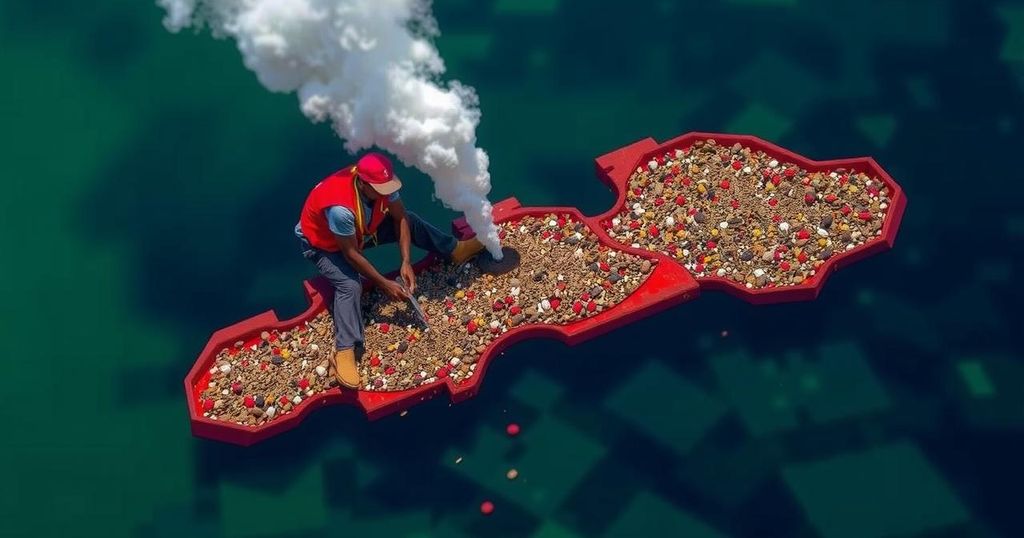The bauxite export operations at Port Kamsar have been suspended, raising concerns for the Guinean workforce and economy, amid potential job losses. This may relate to government stipulations regarding an alumina refinery’s construction. In parallel, Indonesia has banned bauxite exports to enhance domestic value addition and job creation, providing a strategic example for Guinea.
The recent suspension of bauxite export operations at Port Kamsar by a prominent aluminium producer has raised significant concerns regarding the Guinean workforce and the country’s socio-economic future. Despite Guinea being home to the largest bauxite reserves globally, the nation continues to struggle with widespread poverty. The export halt, which lacks official justification, could lead to substantial job losses, particularly since local employment is heavily reliant on contractor labor. Sources indicate that the suspension may be linked to specific stipulations from the Guinean government regarding the mining company’s agreement, notably a delay in the construction of a planned alumina refinery. Workers’ unions have responded with urgency, intending to engage with officials to seek solutions that prevent job losses. Meanwhile, the parent company plans to dispatch representatives to Guinea for discussions, signaling a commitment to resolving the issue and safeguarding the livelihoods of local workers. In contrast, Indonesia has set a precedent with its recent strategic shift to protect its domestic resources by banning bauxite exports. This initiative, aimed at boosting the domestic processing industry and ensuring economic sovereignty, has been underscored by President Joko Widodo’s commitment to enhancing job creation and equitable growth. However, industry experts caution that without sufficient markets for surplus ore, current production levels could lead to disruptions in mining operations. The potential benefits of Indonesia’s move may mirror what Guinea could achieve should it focus on domestic value addition and sustainable practices in its bauxite industry.
Guinea, despite its vast mineral wealth, including the largest bauxite reserves globally, faces chronic poverty, highlighting a disparity between resource wealth and economic development. The recent suspension of bauxite exports from Port Kamsar raises alarms about job security and economic stability for workers dependent on the mining sector. As a case study, Indonesia’s recent ban on bauxite exports exemplifies a strategic transition towards developing domestic processing capabilities, designed to enhance national revenue and job creation. This comparison prompts inquiries into whether Guinea might emulate such strategies to foster a more sustainable economic future.
The suspension of bauxite exports in Guinea portends serious implications for local employment and economic conditions. Without prompt resolution, job losses could proliferate, underscoring the need for proactive engagement between mining companies, unions, and government authorities. Conversely, Indonesia’s successful export ban and focus on domestic resource processing may serve as a model for Guinea, illustrating a path towards improved economic sovereignty and reduced reliance on raw material exports.
Original Source: www.alcircle.com







